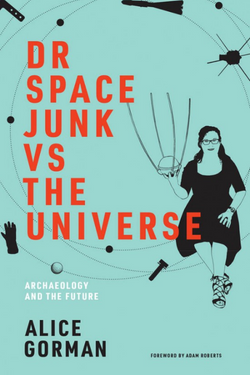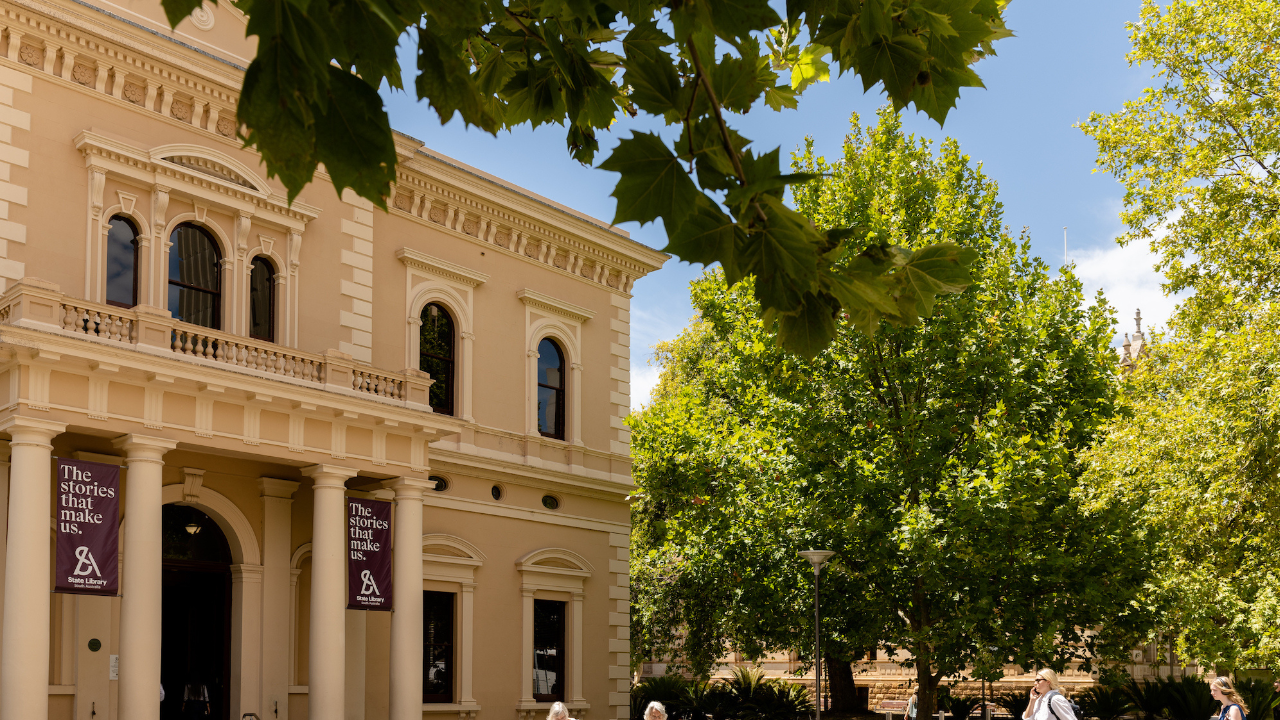
Ahead of her upcoming workshop, author and internationally-recognised space archaeologist Dr Alice Gorman gives us an insight into the concept of futurolinguistics that inspired the session.
The technique of futurolinguistics is inspired by Stanislaw Lem’s dark science fiction spoof The Futurological Congress (1971), in which the enigmatic Professor Trottelreiner proposes a method of exploring the future through language. The theoretical basis of futurolinguistics, as explained by the professor, is this:
‘A man [sic] can only control what he comprehends, and comprehend only what he is able to put into words. The inexpressible is therefore unknowable. By examining future stages in the evolution of language we come to learn what discoveries, changes, and social revolutions the language will be capable of some day reflecting.’
It’s basically an exercise in wordplay: you take an existing word and add prefixes or suffixes, change letters, chop it up, make it into a verb, or whatever you please. Then you think about what the new word means and what kind of society needs this word to describe its values or practices.
Some years ago, I taught a course at the University of Applied Arts in Vienna. At the time I was thinking a lot about what it might mean for humans to live in different levels of gravity. Crew on the International Space Station have to exercise for over two hours each day to maintain their bone density and muscle mass. Without this regime, the astronauts and cosmonauts would end up with a condition well known to the post-menopausal women of Earth: osteoporosis, where the bones weaken and are prone to fracture. Effectively, if people want future settlements in space to succeed, there are going to have to be some longer-term solutions to living in reduced gravity, and this will be critical for women’s participation.
I was curious to see how futurolinguistics could help us imagine some of these futures, so I proposed that the class take ‘gravity’ as its base word. These are a few of the ideas we came up with.
A monograv is a person who has only ever lived in one type of gravity, considered inferior to those who are adapted to multiple gravity regimes. Antineogravitationists are people who oppose living in artificial gravity, believing that the body should adapt to whatever gravity it finds itself in. Gravity might become as contested as diet is now – perhaps there are groups who believe in palaeogravity, replicating the gravity conditions of the pre-spacefaring age.
A gravault is a prison where people adapted to low or micro- gravity are incarcerated in higher gravity, their ability to move freely taken away. Perhaps this is punishment for the future crime of kleptogravity, where a person steals another’s gravity ration. This idea, perhaps, is not as far away as one might think.
The earliest space stations, such as the rotating wheel conceived by the Viennese engineer Hermann Noordung in 1929 (think 2001: A Space Odyssey), were designed to produce ‘artificial’ gravity by spinning, like the centrifuge astronauts train in. In the 1960s, NASA considered spinning space stations, but decided that astronauts might not enjoy being spun like a sock in a washing machine. Having been in a gravity rotor in an amusement park, I can categorically say that I did not enjoy it.
None of the habitable space stations launched so far – the Salyut series, Skylab, Mir, Tiangong 1 and 2, and the International Space Station – have tried to create gravity by spinning. Part of their purpose is to conduct science in microgravity, after all; gravity is just a luxury for the comfort of the crew. The crew exercise regime is critical to ensuring that their bodies can adapt again to Earth gravity when they return.
Currently, everyone on the International Space Station gets equal access to the treadmills, weights and cycles. It doesn’t take much to imagine, though, that situations might change and one group might assert dominance by controlling access to exercise, knowing the consequences for those excluded. Kleptogravity could become a reality in this context.
Living in variable gravity environments makes gravity a commodity that it simply isn’t on Earth; it becomes foreground rather than background, and there are all kinds of social implications to consider. They don’t all have to be gloomy, though. One student proposed the groovity club, where dancers go to bust their moves to the DJ playing gravity levels along with the beats.
I’ve found futurolinguistics to be a very useful way to break out of deeply-held cultural assumptions and imagine other worlds, futures, or even pasts.

Adapted from Dr Space Junk vs the Universe: Archaeology and the Future. Sydney: New South Publishing (Pp 260 – 265)
If you’d like to book into Dr Gorman’s workshop on June 25, click here.







